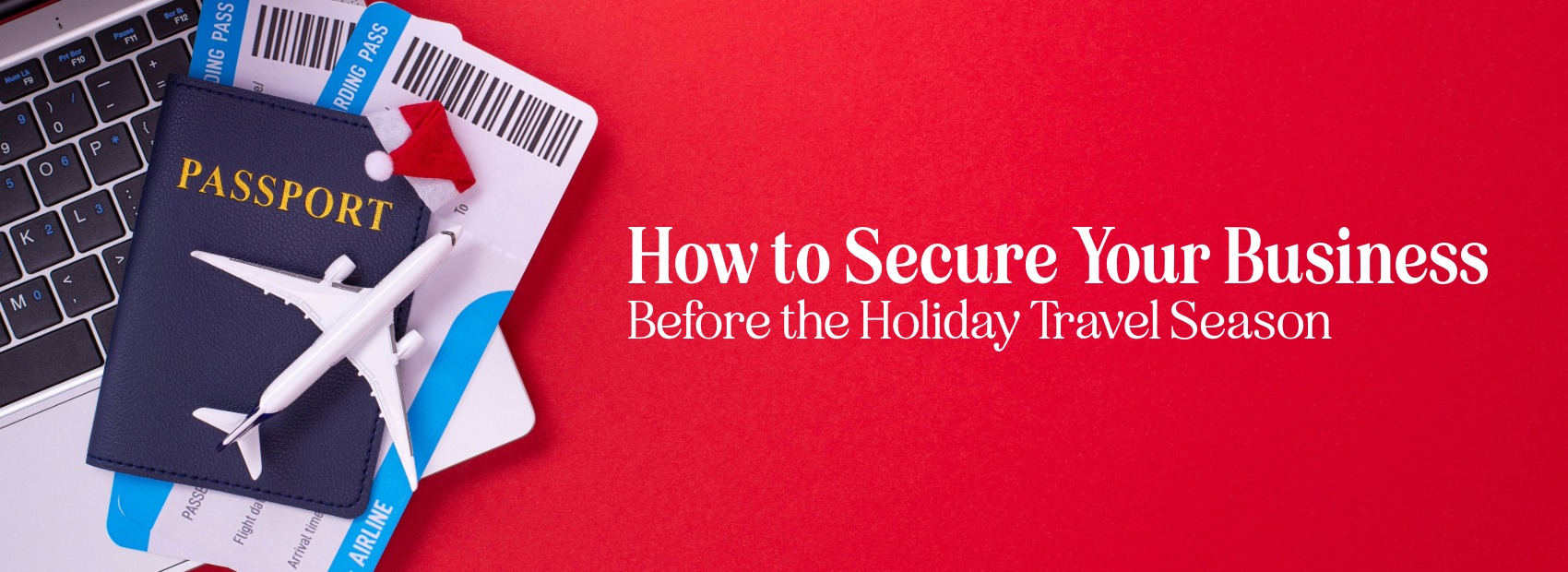Pileus Technologies: Blog

How to Secure Your Business Before the Holiday Season
The holiday business security guide is essential for every small and medium-sized business preparing for the busiest travel months of the year. November and December bring unique risks: empty offices, distracted employees, and remote logins from less secure networks. Cybercriminals are aware of this and increase their attacks accordingly. A step-by-step plan helps ensure your systems remain protected even when staff are traveling or working fewer hours.
Create a Pre-Holiday Security Checklist
A holiday business security guide begins with a simple checklist. SMBs should review current security policies, confirm software updates, and verify that backups are complete. The checklist should also include testing disaster recovery plans, so that everyone is aware of their responsibilities in the event of an incident.
Consider scheduling time before Thanksgiving to test office alarms, physical locks, and server room access. Even non-digital measures matter. Many breaches begin with lost equipment or unattended workstations. A strong checklist reduces the risk of missing small but important steps.
Enable MFA on All Remote Accounts
One of the most effective steps in the holiday business security guide is enabling multi-factor authentication (MFA). Employees often log in from hotels, airports, or relatives’ homes during the holidays. These networks may be insecure. MFA ensures that even if a password is stolen, the attacker cannot gain access without a second factor.
According to the Cybersecurity and Infrastructure Security Agency, MFA can block over 99% of automated attacks. SMBs that use remote desktop, VPN access, or cloud platforms should make MFA mandatory before the holiday season.
Train Staff on Holiday Phishing Scams
The holiday business security guide must include awareness training. During November and December, phishing attacks disguised as shipping updates, fake holiday sales, or e-greeting cards spike dramatically. Employees should learn how to spot unusual senders, mismatched URLs, or urgent requests for payment.
A short refresher training course can be delivered in under an hour. MSPs can help SMBs run simulated phishing campaigns, allowing employees to practice identifying threats. By increasing awareness before the holiday rush, businesses reduce the risk of costly clicks on malicious links.
Monitor Networks While the Office Is Quiet
The final step in the holiday business security guide is continuous monitoring. Offices may be half-staffed or empty, which means unusual activity could go unnoticed. Setting up 24/7 monitoring through an MSP such as Clarity Technology Solutions ensures that alerts are reviewed even when local staff are unavailable due to vacation.
Security monitoring should include endpoint detection, intrusion alerts, and log reviews. Many SMBs partner with MSPs to outsource this function so they can enjoy the holidays without worrying about silent threats. According to IBM’s Cost of a Data Breach Report, the average time to identify a breach is still over 200 days. Proactive monitoring helps shorten this gap and reduce overall damage.
Why SMBs Should Take Holiday Security Seriously
Holiday downtime is not downtime for cybercriminals. In fact, hackers target businesses when employees are most distracted. A strong holiday business security guide helps SMB leaders avoid becoming easy prey during the busiest travel season.
By following the steps above—creating a checklist, enabling MFA, training staff, and monitoring networks—small businesses protect their data, safeguard client trust, and ensure operations continue smoothly into the new year.
Do not let the holidays become an opportunity for attackers. Schedule a consultation with our team today to review your holiday readiness plan. Together, we can ensure your systems stay secure and your staff enjoy the season with peace of mind.





